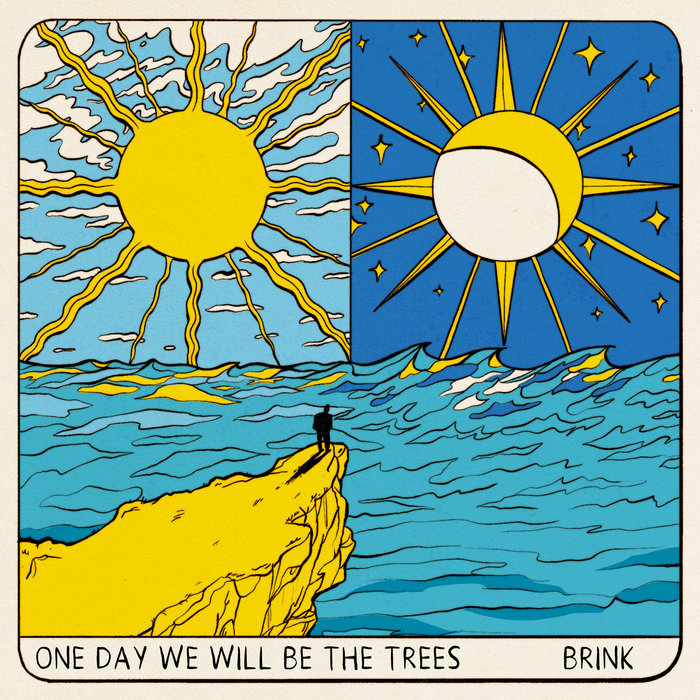UK math/post-rock auteurs One Day We Will Be the Trees’ debut collection Brink announces the arrival of a major creative force. The band directs their musical inclinations in a largely instrumental direction with impressive results, but their smattering of vocal and lyric contributions reaches the same lofty standards. Despite their obvious ambitions, One Day We Will Be the Trees never succumbs to pretentiousness. Their playing, singing, and words are full of immediacy and conversational language certain to connect with a wide swath of listeners. Moreover, the band eschews any grandiosity in their arrangements. Brink’s longest track is a little less than five and a half minutes in length and fully justifies that running time.
Many of the other songs, however, are much shorter. The collection opens with the instrumental “…And the Leaves Will Shield Our Eyes” and this performance sets a paradigm for the band’s aesthetic. Strong guitar playing and percussion rule the roost and the arrangements often present a musical thesis that they explore elaborations on throughout the entirety of the song. They work like sonic painters; they reach their goals through a cumulative process rather than belaboring one key idea.
Their penchant for provocative song titles makes its first appearance with “A Tangled Fog of Pulsating Yearning in the Shape of a Woman”. Handclaps, honest to God, start the track before the guitar comes in. The winding, snake-like six-string motifs spiral, ascending and descending, but the yo-yo-ing effect is profoundly musical rather than disorienting. The song burns hotter and more chaotic as it moves deeper into the performance and piano peers through the growing cacophony. It’s one of the album’s masterful examples of One Day We Will Be the Trees’ artistic vision and proves fully satisfying.
“All These Squares Make a Circle” is the album’s shortest track at just over ninety seconds and unleashes an outright blast of hard rock on unsuspecting listeners. The album’s mood takes a melancholic inward turn with the track “Speaker for the Dead”. There are light melodic touches scattered throughout the cut and several unpredictable twists in its arrangement that keep listeners engaged. The band’s aforementioned painterly tilt is particularly pronounced here as the song’s sum is greater than its individual parts.
“Disengage” has a brief lyric brooding over a loved one’s yearning for another. The band applies post-production effects to the vocals that accentuate the song’s theme without ever straining for significance and the surprising detour into an acoustic, nearly folk, arrangement doesn’t strike one as being out of place on the release. “I Used to Have an Anger Problem, Now I Have an Anger Solution”, easily the album’s best song title, begins as a bass and drum duet before launching into a guitar-driven gem. One Day We Will Be the Trees come across as a band with long-established and reliable chemistry and the “live” feel of this recording serves the song well. It more than lives up to the promise of its title while crackling with fiery intelligence from the first note to the last. Few releases this year will impress serious music fans as Brink does. One Day We Will Be the Trees have discovered their voice and their future is boundless with possibility.
Heather Savage

